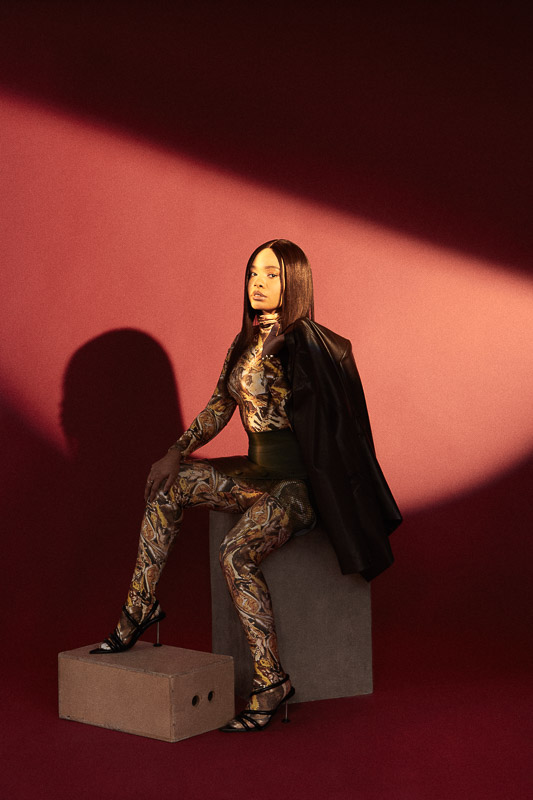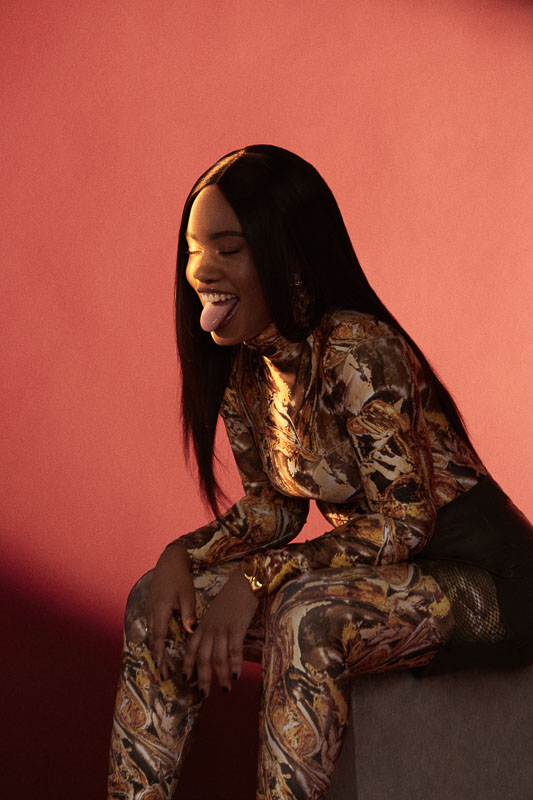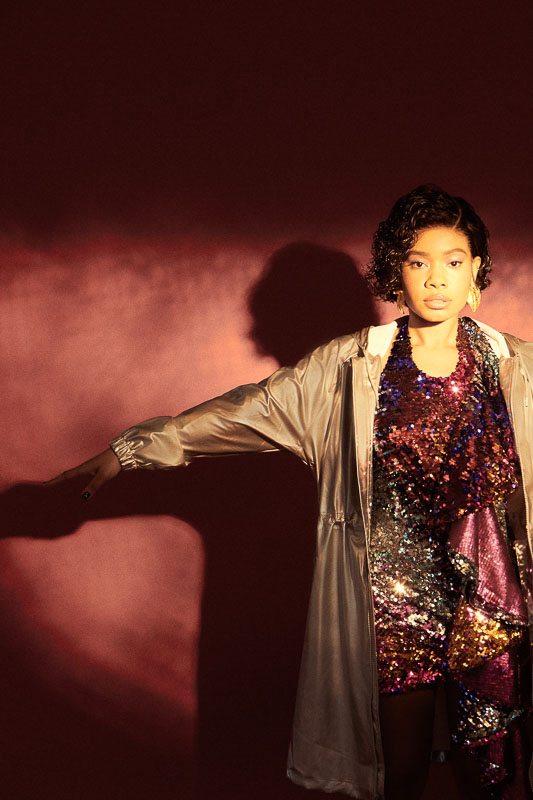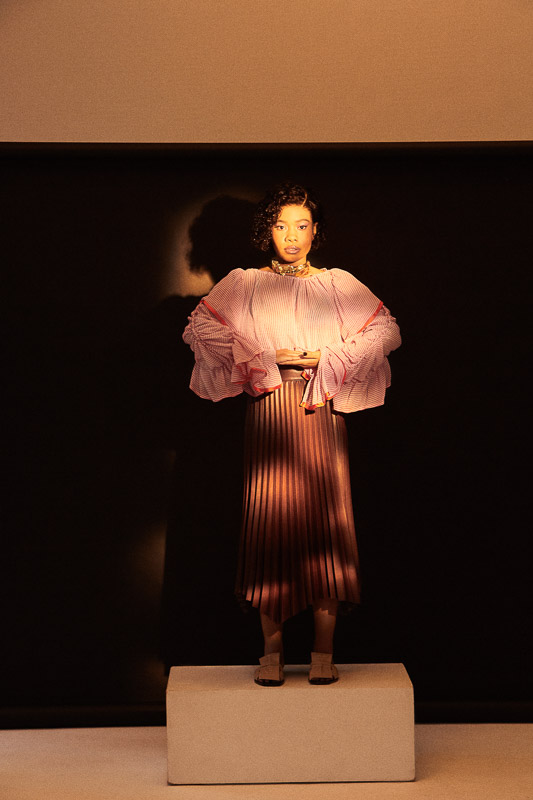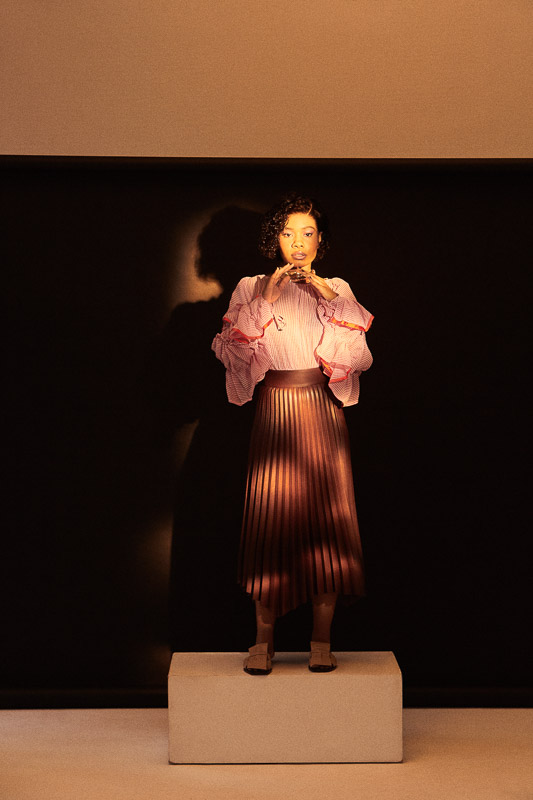Weruche Opia Exclusive Covershoot and Interview
Weruche Opia X FAULT Magazine
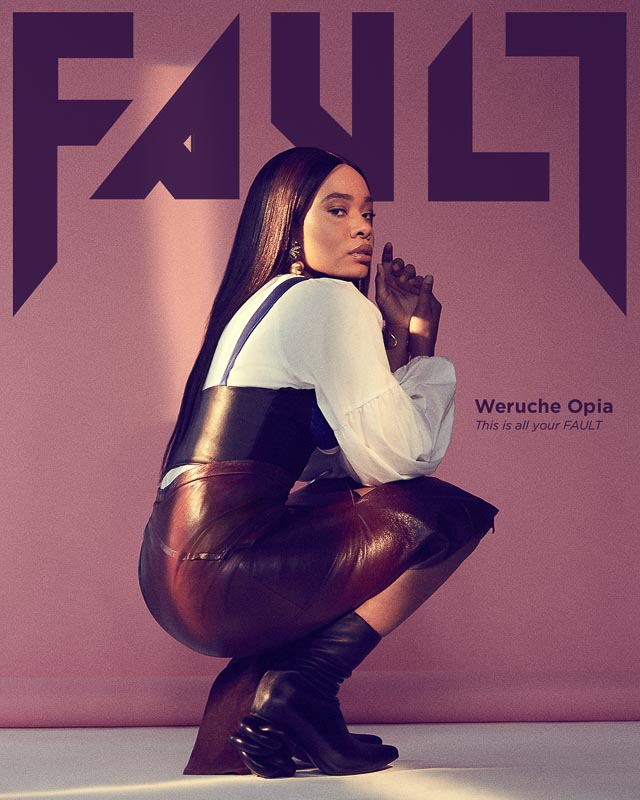
Photography – David Yeo
Fashion Editor – Edith Walker Millwood
Mua – Elise Reisser
HairStylist – Beverley Frimpong
Nail Artist – Nadia Blanco
Fashion Assistants – Hiba Hassan & Rosie O Sullivan
Videographer – Ceclia Mcaloon Wolff
Words by Ray Sang
Meet Weruche Opia, the entrepreneur and actress widely known for her portrayal of Nafisa in Season 2 of Channel 4’s Top Boy. For the British-Nigerian actress, 2020 has been an unexpected whirlwind that ushered in gusts of praise from critics for her role as Terry in the TV drama “I May Destroy You”. The series, which aired at the height of the Black Lives Matter protests, triggered a crucial dialogue on the way Race and ethnicity contribute to the perception of trauma, within the context of assault; as well as thoroughly dissecting the ambiguous aspects of consent in a way that had not been seen on-screen before.
For Black History Month, Opia spoke to Fault, about her faith, the importance of having the series at a time like this, and what “I May Destroy” means for representation within the entertainment industry.
Apart from the obvious drop in temperature what was the biggest adjustment for you moving from Nigeria to the UK?
Weruche Opia: Hah! The biggest adjustment for me was the community divisions. I grew up in Nigeria, went to multicultural schools, and had friends from all different cultures and we all got along. I got to experience many different cultures and never felt unwelcome or like an outsider. I had a different experience when I moved to the UK. I found people of the same culture stuck to their own communities and it felt strange. Thinking back, maybe I had a rose-tinted view of the world when I was growing up. Seeing the world like The Sherman Brothers – It’s A Small World, where everyone lives in perfect harmony, completely oblivious to the struggles of people of other cultures living in the diaspora and their need to stick with their kinfolk.
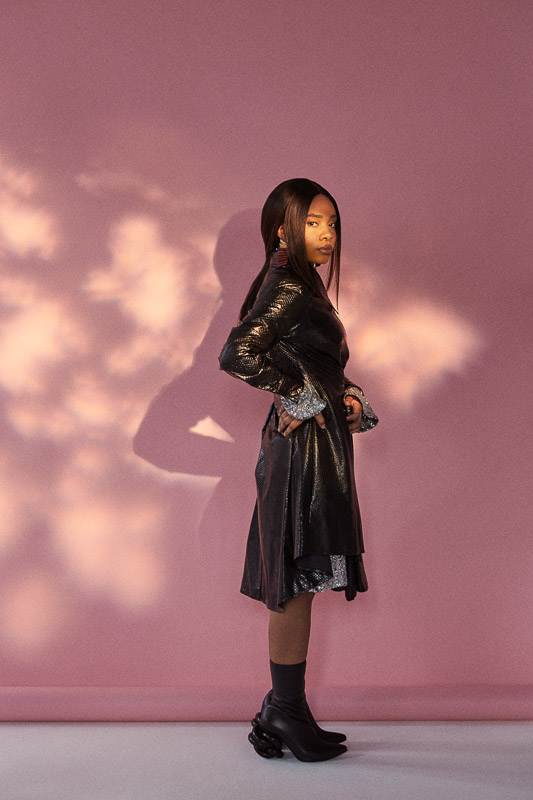
Speaking of those struggles, for you, as a Black actress, why was it so important to be part of a show that was so intentional about addressing the issues the Black community faces?
Weruche Opia: It was important because representation truly matters. Being a Black woman, we experience a lot of the things women of other cultures experience, but for some reason, our stories are not amplified to the same scale as our counterparts. I May Destroy you shows the more vulnerable side to Black people, of all genders, experiencing trauma, trying to heal and recover from the said trauma, just as all humans do. Not the stereotypical strong Black man or strong Black woman narrative which is often pandered, sometimes painting us as mystical creatures who are impervious to pain, which we, in fact, not always.
Leggings – Nicola Bacchilega
Jacket – Le Slop
Skirt – Krupa ET AL
Shoes – Tabitha Ringwood
With that being said as a woman of Nigerian descent do you feel it’s your duty to raise awareness of everything happening with SARS and other more politically driven protests happening back home?
Weruche Opia: I tend to speak up about issues I feel strongly about. I am by no means a spokesperson for all things Nigerian, but when I feel the need, I speak. The current situation in Nigeria around SARS and the protests against them, stems from rogue units within the Nigerian Police Force, terrorising citizens, especially the young people, for far too long, and now the youth are speaking out against the police as well as the government, who have failed to regulate and apprehend these injustices. As a young Nigerian, having had my own unpleasant experiences with the police, I feel it imperative to bring awareness to this issue, hopefully assisting in bringing about much-needed change to the systems, justice to the victims, and accountability to the leaders.
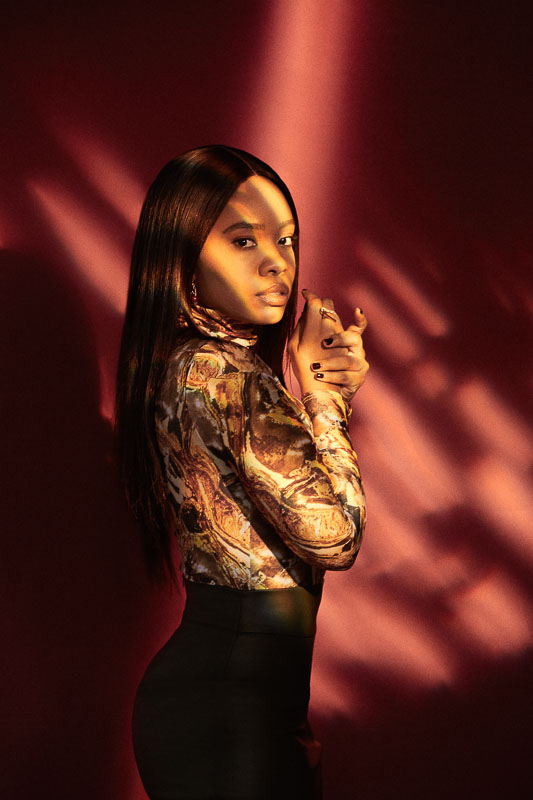
Leggings – Nicola Bacchilega
Jacket – Le Slop
Skirt – Krupa ET AL
Shoes – Tabitha Ringwood
Outside of your cultural heritage, your faith is something else that has shaped who you are as a person. How does this inform the way you’ve charted your career thus far?
Weruche Opia: My faith plays a big part in every aspect of my life. In my career, before taking on any roles or making any decisions, I pray and seek spiritual guidance. I only do what I’m personally comfortable with and what I feel is right for me. And thankfully, things have always worked out!
Jacket – Rains
Dress – Halpern //Hurr
This also led to the inception of your clothing line, tell me more about how that came about?
Weruche Opia: As a teenager, I had a rough couple of years where I became an avid cannabis user. For most, it may be harmless, but for me, it almost derailed my life. After almost getting kicked out of Sixth Form a couple of times, I realised I had an issue. I grew up Christian, but when I got into my teens, went off to do my own thing. In trying to get my life back on track, I found myself back in church and my life changed almost instantly for the better and I’ve never looked back. I felt like my dependence on cannabis was replaced with a dependence on Jesus and that’s where my clothing line Jesus Junkie –“ Addicted to Jesus” was birthed.
Skirt – Joseph
Sandals – Ganor Dominic London
Choker & Cuff – Cornelia Webb
I love that! Going back to “I May Destroy You”, the show itself has three Black leads, which is arguably a step in the right direction for representation. What more do you think needs to be done, for the industry to get to a place where seeing things like this on-screen is the norm?
Weruche Opia: The industry needs to allow people of Black and mixed ethnicity the space for trial and error. I read an article recently, where Steve McQueen stated that Black creatives should be able to make ‘crappy’ films. I completely agree. This plainly means the industry must take risks and allow new writers, producers, showrunners, and other execs, especially those of colour, the space to try new ideas without the pressure of having to deliver a smash hit.
White creatives in contrast to their Black counterparts have been given more leeway in terms of trying things, failing, but then being given the opportunity to try again. It’s easier for them to make easily consumable work, while Black creatives are expected to deliver immediate brilliance and hit it out of the park from the get, which I believe is unfair and adds significant pressure. We need to see more stories from more diverse narratives, which then filters down to the actors and is what we end up seeing. In order for us to have more representation, we must be able to tell all different kinds of stories. Whether run-of-the-mill or revolutionary, let us tell them.
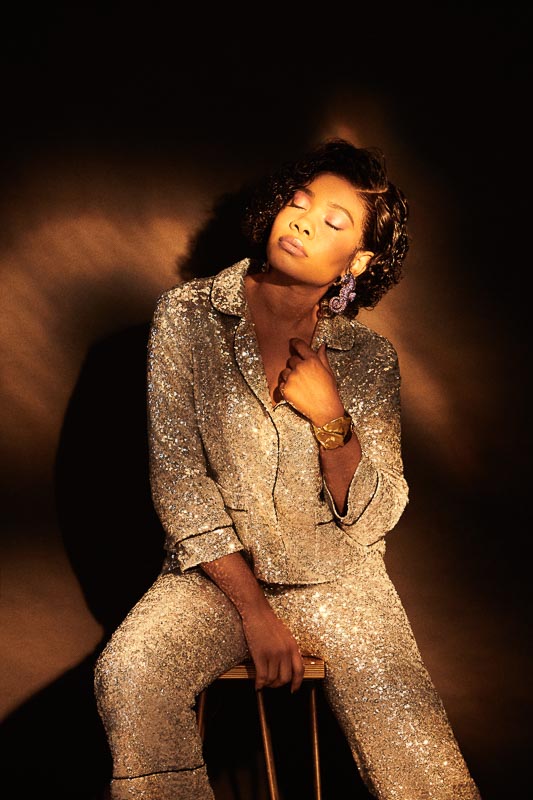
Co- PR’s – In The Mood For Love // Hurr
Shoes – Tabitha Ringwood
What was the biggest learning you took from working alongside, Michaela Coel and Paapa Essiedu?
Weruche Opia: To always bring my A-game! Working with both Michaela and Paapa was about excellence, which they both exuded naturally and effortlessly. Whenever I was in a scene with either of them, I could either be demure and fade into the background or step up my game and shine alongside them. Michaela has the most unique mind and a work ethic unlike anything I’ve seen, and Paapa, is just that annoyingly cool guy who never breaks a sweat and everything he touches turns to gold.
What has the lockdown period taught you about yourself both as an actress and more generally as a person?
Weruche Opia: That it’s the little things that truly matter. Whether it be a facetime call to my niece, or eating ice cream with my mum while watching telly, I’ve learned that life is about appreciating time with loved ones and sometimes, just being alive is enough. I’ve learned that no matter how hard I may try or push sometimes, whatever is for me will be for me and whatever will be, will be. So relax, have faith, and Hakuna Matata!
Finally, Weruche, what is your FAULT?
Weruche Opia: Being too passionate. Passion is an incredible gift to possess. Passion is a driver, a force that can push you to achieve much. However, passion also comes with its downsides. Being too passionate about the wrong thing can end up badly or [with you] simply jumping in headfirst without a plan. It can have you waste a lot of time and end up back at the starting line. Sometimes it’s a blessing, sometimes a curse.
